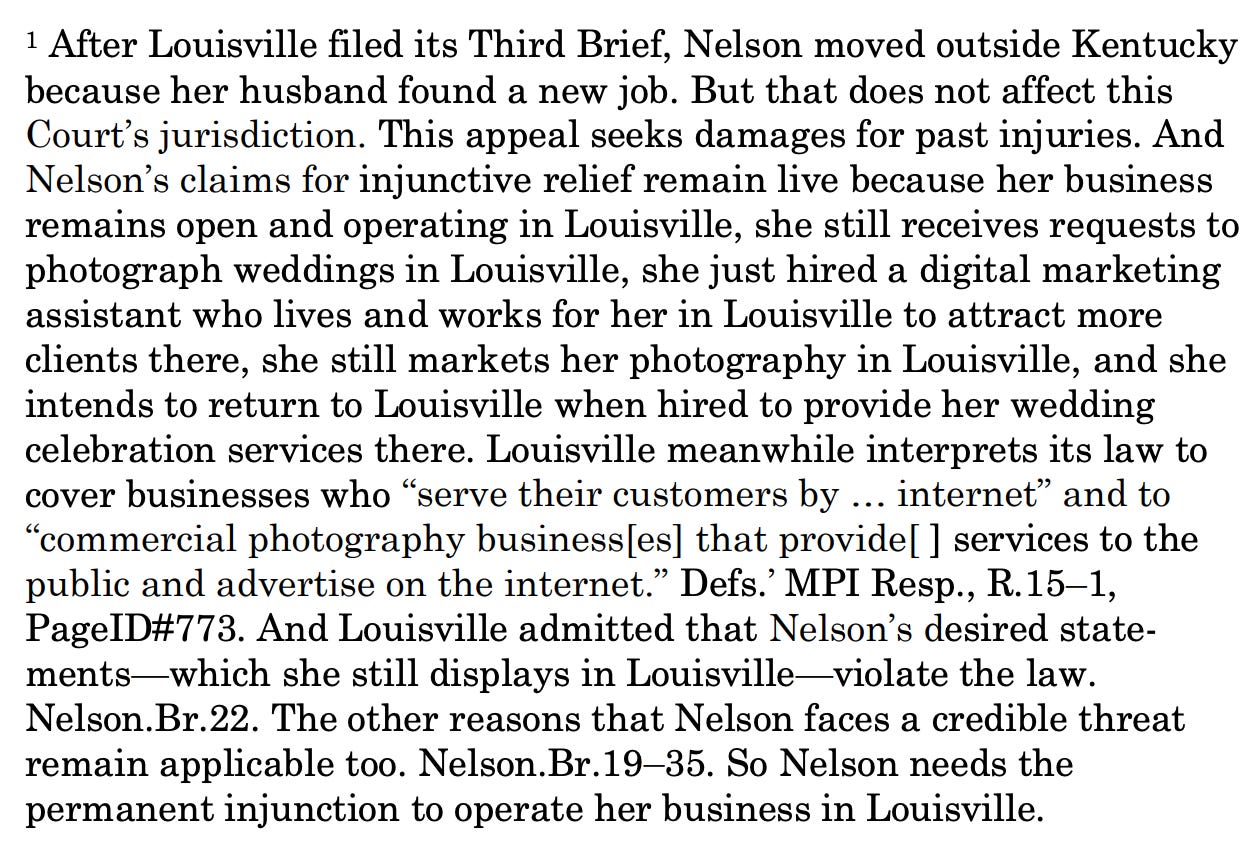Alito lashes out (again), and an anti-drag law is enjoined (again)
Justice Sam Alito gave another interview to The Wall Street Journal. Montana Pride will proceed while the state's anti-drag law is on hold. And: The first post-303 Creative case might not be a case.
On Friday, The Wall Street Journal published its second “Weekend Interview” with Justice Samuel Alito this year. It laughingly claims that Alito is “the Supreme Court’s Plain-Spoken Defender“ in its headline, and things go downhill from there.
In it, David Rivkin Jr., a Baker Hostetler partner with a major case pending before the court, and James Taranto “interviewed” Alito about all manner of things. After going through rather mundane discussion of Alito’s one-sentence, mainly predictable takes on his colleagues, they get to Alito’s favorite topic.
As with his last “interview” — and his “Commentary” piece submitted as a preemptive strike against Pro Publica — Alito’s most notable moment was when he stopped to condescend to others with a desire to hold the Supreme Court accountable even for basic ethical standards.
This is, as everyone within Google-reach of the U.S. Constitution has said, absolutely not true. As I have noted, however, Sam Alito does not care about that.
This statement is a not a moment where he forgot what the Constitution says. It is, rather, another moment where he can, rhetorically, stick out his tongue and say, “Nah nah, who’s gonna stop me?”
I’ll have much more on this in the days ahead.
TRO granted against Montana’s drag ban
A federal judge on Friday granted a temporary restraining order against enforcement of Montana’s new anti-drag law — one of the most extreme of such laws passed in the nation — so that Montana Pride (celebrating its 30th anniversary!) can obtain its needed permits to go forward beginning Sunday.
In a 20-page ruling, U.S. District Judge Brian Morris, an Obama appointee, detailed the specific attacks contained within H.B. 359 — from “drag kings” and “drag queens” to “drag story hour” — as well as the vague terms used throughout to address this imagined problem.
“The Government possesses a compelling state interest in children’s wellbeing and safety. The record before the Court suggests, however, that this compelling interest remains untethered from the text and application of H.B. 359,“ Morris wrote.
Morris concluded that, based on the initially available record, the law likely has similar constitutional problems to those identified by the judges overseeing the cases against the anti-drag laws in Tennessee and Florida.
While the whole opinion is worth a read, the brief “public interest” section really sums up how far afield — and how hateful — these laws are.
After Pride and additional briefing, Morris will consider the request for a preliminary injunction.
Sixth Circuit considers post-303 Creative case
On Friday morning, a three-judge panel of the U.S. Court of Appeals for the Sixth Circuit heard arguments over the case of a wedding photographer whose lawyers claimed that the recent U.S. Supreme Court decision in 303 Creative v. Elenis “definitively resolves” her case against Louisville, Kentucky.
Aside from the question of whether a Supreme Court case where the state stipulated to several key issues “definitively resolves” any other case, there’s another front-and-center problem here.
The case might no longer be a case. (Where have we heard that before? I know, I know, but read on.)
In a brief filed in April, Chelsey Nelson’s lawyers with Alliance Defending Freedom — the same far-right Christian legal group behind the 303 Creative litigation — dropped a footnote explaining that Chelsey not only moved outside of Louisville, but “moved outside Kentucky.”
In filings earlier this week, Louisville’s lawyers filed a letter questioning the effect of this move, detailing that Nelson actually moved all the way to Florida. They later also filed a motion asking the appeals court to remand the case to the district court to address the issue.
As the motion detailed: “In light of Nelson’s move out-of-state, it is even more clear that she cannot establish a credible threat of enforcement sufficient to support her assertion of pre-enforcement standing to challenge Louisville Metro’s Ordinance.”
Why? They explained:
At arguments on Friday, all three judges — Judges Jane Stranch (an Obama appointee), Eric Murphy (a Trump appointee), and John Bush (a Trump appointee) — appeared at least open to the argument that the case should be sent back to the district court to consider factual questions relating to Nelson’s move and its effect on standing and mootness.
There will, however, be more briefing on that question before any ruling from the appeals court.










Hmmmm...
I suppose maybe Alito is right.
But that doesn't mean that Congress could not repeal the statute that lets the Supreme Court pick its own docket and instead require that it go back to the old practice of hearing every appeal from the circuit courts.
Nor does it mean that Congress is unable to eliminate all funding for law clerks and secretaries.
And it also wouldn't mean that Congress couldn't repurpose that big marble building across the street from the Capitol and instead require that the justices here their cases in that dank dark room in the capital basement.
In other words, lots more cases, no assistance from clerks or secretaries, and each justice maintaining chambers in their own home (out of their own pocket), just as was the case in the late 1800s.
Surely Justice Alito would be fully supportive of returning to these older practices which would keep him and his fellow justices much more busy than they currently are.
And who knows -- maybe require a return of the practice of riding circuit?
Judges with agendas undermine liberty and justice for all. Justices Alito and Thomas lead the way in placing their own eccentric views above the law. It is not right. Congress can do something about this, but it will take time and voters.